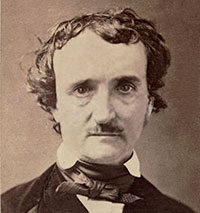 The short story is a staple of literature, and it is international. Chekov—Russian. Alice Munro—Canadian. William Trevor—English. Guy de Maupassant—French. Fitzgerald and Hemingway—US, to name a very, very few. There was a time they were very widely published in the United States, not just in specialized magazines, but in mass circulation publications like The Saturday Evening Post. I read recently that in the 20’s Fitzgerald was paid as much as $4,000 for a short story, which, in today’s world, would be close to $50,000. Today one would be lucky to get that $4,000.
The short story is a staple of literature, and it is international. Chekov—Russian. Alice Munro—Canadian. William Trevor—English. Guy de Maupassant—French. Fitzgerald and Hemingway—US, to name a very, very few. There was a time they were very widely published in the United States, not just in specialized magazines, but in mass circulation publications like The Saturday Evening Post. I read recently that in the 20’s Fitzgerald was paid as much as $4,000 for a short story, which, in today’s world, would be close to $50,000. Today one would be lucky to get that $4,000.
 Read most standard literary histories and Edgar Allen Poe (1809–1849) is credited with being the “inventor” of the short story as we think of it today. He even postulated rules for the genre. Among them were:
Read most standard literary histories and Edgar Allen Poe (1809–1849) is credited with being the “inventor” of the short story as we think of it today. He even postulated rules for the genre. Among them were:
- Able to read in one sitting.
- A unity of effect (think of his horror stories).
- A key, opening sentence, one which sets the tone for all that follows.
- Nothing digressive. A unity of subject.
Needless to say, such rules are not required to play the game, but they are a good starting point to think about the genre.
Some years ago when I was selecting short stories for an anthology of stories (Best Shorts) it was staggering to consider just how many good ones have been written. Also, I discovered how many a short story was lurking in the guise of a good number of picture books.
It has often puzzled me why short stories are not a staple of the classroom in some kind of read aloud story-a-day curriculum. For the most part I write novels and am eager to have them in young people’s hands and read in schools. But consider Poe’s rules above; consider how much easier to teach writing if the goal is a short story and not a novel.
Need help in locating stories? Read Me A Story, Ink is a terrific source.
In other words, instead of short changing your students, give them short stories.
2 thoughts on “Short Stories”
Rose Wilder Lane was paid $40,000 for a story on the 1930’s. She used the money to build a modern house for her parents Almanzo and Laura Ingalls Wilder. They lived in that house about ten years but missed the farmhouse Almanzo built himself so moved back.
Will you write a third novel in your Magnus and Fabrizio series?